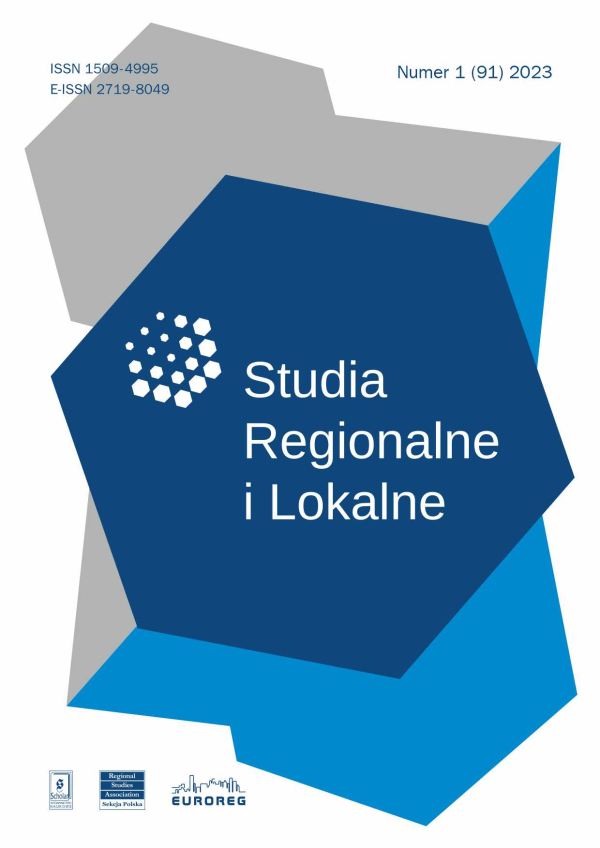Opublikowano w numerze
1(91)/2023

- Przemysław Ciesiółka, Łukasz Mikuła, Paweł Churski, Bartłomiej KołsutModel struktury funkcjonalno‑przestrzennej w strategii rozwoju ponadlokalnego[więcej]
- Anna Kurniewicz, Paweł Swianiewicz, Julita ŁukomskaWpływ statusu stolicy wojewódzkiej na rozwój miast – przypadek reform w latach 1975 i 1999 w Polsce[więcej]
- Łukasz DrozdaGentrification in a Post-Socialist Rural Context – The Case of Polish Vineyards[więcej]
- Oleksiy Gnatiuk, Kostyantyn Mezentsev, Grygorii PidgrushnyiNexus of Religion, Ethnicity, and Geopolitics – A Case of Geopolitical Fault-Line Cities in Eastern Ukraine[więcej]
- Nataliya A. Vinnykova, Ruslan O. ZaporozhchenkoDynamics of Social Cleavages under Ongoing War in Ukraine[więcej]
- Oleh PetryshynPopulation Loss Through Migration and Internal Displacement as a Risk Factor for Stronghold Territorial Communities in Post-Invasion Ukraine[więcej]


